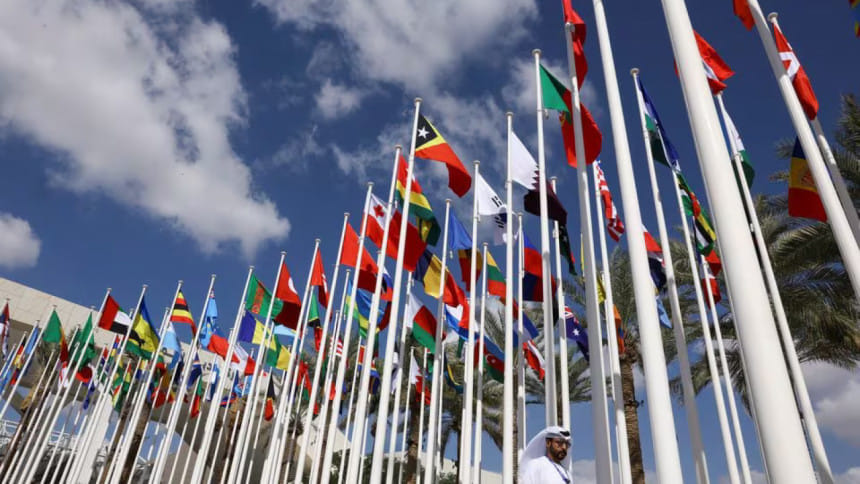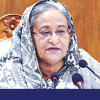No one wins in a lose-lose world

If the international community was ever on track towards a more peaceful and just global order, it was during the early post-Cold War years. While global governance was not free of flaws, the risk of a great-power war seemed low, and poverty was declining. Moreover, the initial results of summits dedicated to promoting development and safeguarding the environment raised hopes for breakthrough solutions to humanity's most pressing problems.
But geopolitical tensions and economic uncertainty have long since crowded out the optimism and ambition of that era. Rather than working together to address urgent challenges, the international community is now "gridlocked in colossal global dysfunction," as UN Secretary-General Antonio Guterres put it.
Worse, many states no longer seem to care about the wider benefits of the liberal world order; they are more worried about their own slice of the pie. Key actors in the transatlantic community, powerful autocracies, and the so-called Global South have all become dissatisfied with what they perceive as an unequal distribution of the gains from global cooperation.
In the face of geopolitical uncertainty, it is understandable that a country would want to protect its piece of the pie. But the international community must prevent fears of unequal outcomes from prevailing in policy debates. Above all, efforts to protect individual shares must be balanced with attempts to enlarge the pie.
In many Western countries, large parts of the population believe that their piece of the pie is shrinking, owing to what they see as a general trend of domestic stagnation and decline. New data from the Munich Security Index shows that few people in the G7 today believe that their countries will be more secure and wealthier a decade from now. Moreover, many expect China, as well as Brazil, India, and South Africa, to become much more powerful over that period.
Populist politicians in the West are adept at exploiting the fear of decline, but the nationalist policies they propose could accelerate the process. Even non-populist leaders have grown wary of globalisation, as the downsides of increasing interdependence become apparent.
China arguably has been the main beneficiary of the liberal economic order. Having helped grow the global pie, Chinese leaders now believe their country deserves a bigger slice, and that the United States is in fact the revisionist power attempting to halt China's rise and prevent it from assuming its proper role on the global stage.
Faced with several domestic challenges, including a shrinking population, a property crisis, and high levels of government debt, China will likely focus even more on relative gains in the coming years. While Chinese leaders continue to speak of "win-win" cooperation, others joke that now it means China wins twice. Clearly, Chinese policies in recent years have led some to grow more sceptical of its long-term goals and even prompted a few to "de-risk" their relations with the country.
Others are not worried about their share of the pie getting smaller, because they believe it was paltry in the first place. To people living in poverty or suffering from protracted conflicts, calls to defend the abstract rules-based order and shoulder the accompanying costs sound tone-deaf and intended to reinforce Western dominance.
Many Global South countries know well that they will suffer the most from increasing geopolitical fragmentation. That is why they try to avoid taking sides and instead call for multi-alignment, which would allow them to pursue their own interests. But the transactional diplomacy that some of these countries endorse, with its focus on bilateral deals and short-term wins, could undermine the long-term prospects only a rules-based system can provide.
As more states define their success relative to others, a vicious cycle of zero-sum thinking could begin, undermining shared prosperity and exacerbating geopolitical tensions. This lose-lose scenario is already unfolding in many policy fields and engulfing various regions. Even climate policy, perhaps the best example of how global cooperation can benefit all, risks falling prey to concerns about which country might gain at another's expense.
There are valid reasons for some of these policy choices: "de-risking" economic relations is a rational response to a more competitive environment and can help reduce vulnerabilities. But the increasing fragmentation of the world economy into competing geopolitical blocs could derail growth, especially in low-income countries. Reduced economic growth, in turn, nurtures a zero-sum mindset—creating a self-fulfilling prophecy.
In the face of geopolitical uncertainty, it is understandable that a country would want to protect its piece of the pie. But the international community must prevent fears of unequal outcomes from prevailing in policy debates. Above all, efforts to protect individual shares must be balanced with attempts to enlarge the pie. This will require building new partnerships, based on mutually beneficial cooperation, and reforming the rules-based international order to ensure that the gains are shared broadly. If these efforts fail, every slice is destined to shrink—and countries will end up competing over who loses less.
This commentary is based on the introductory essay of the Munich Security Report 2024.
Tobias Bunde, a senior researcher at the Hertie School in Berlin, is director of research and policy at the Munich Security Conference.
Sophie Eisentraut is head of research and publications at the Munich Security Conference.
Views expressed in this article are the author's own.
Follow The Daily Star Opinion on Facebook for the latest opinions, commentaries and analyses by experts and professionals. To contribute your article or letter to The Daily Star Opinion, see our guidelines for submission.


 For all latest news, follow The Daily Star's Google News channel.
For all latest news, follow The Daily Star's Google News channel. 











Comments